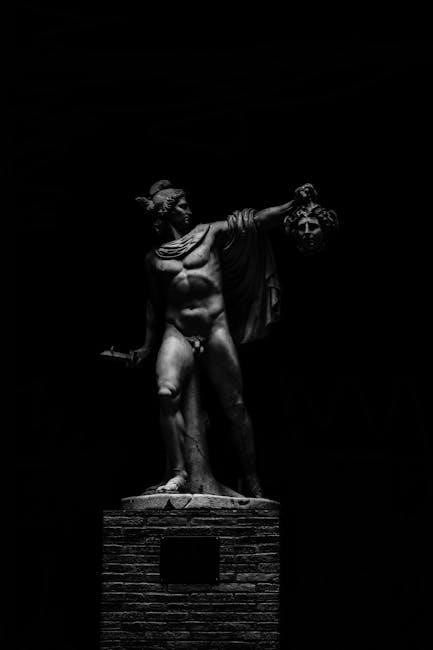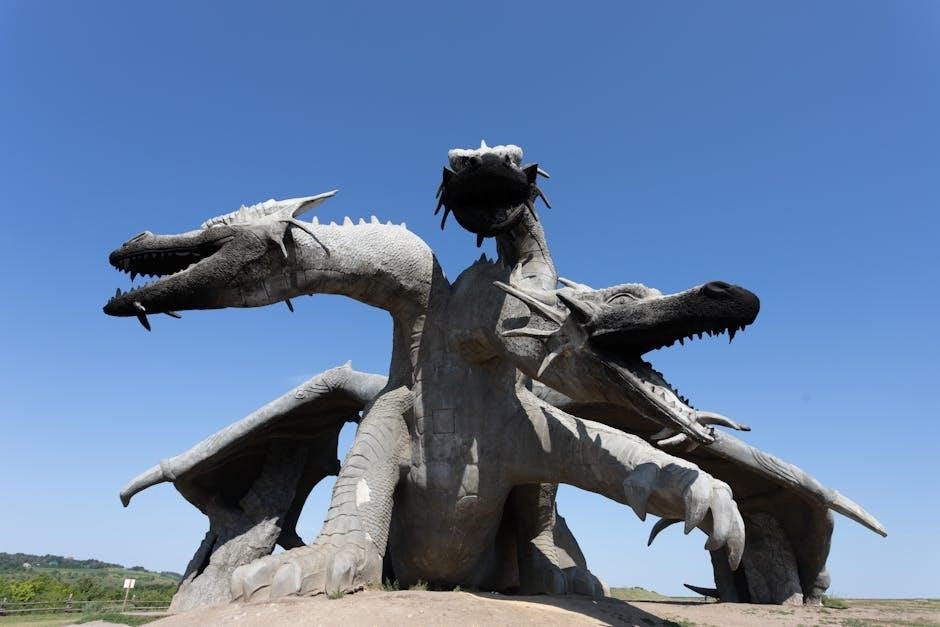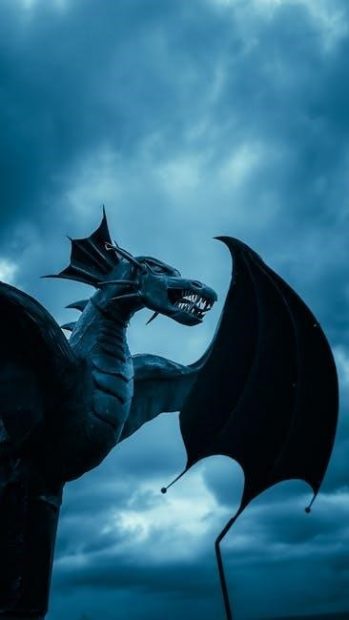Joseph John Campbell, a renowned American mythologist, author, and lecturer, was born in 1904 and passed away in 1987. His groundbreaking work, The Power of Myth, co-authored with Bill Moyers in 1988, explores universal mythological themes. This seminal work, available as a PDF, delves into the cultural and psychological significance of myths, resonating deeply with contemporary audiences. Campbell’s insights into mythology have profoundly influenced fields like literature, film, and psychology, making him a pivotal figure in understanding human culture and storytelling.
1.1. Who Was Joseph Campbell?
Joseph John Campbell was a celebrated American mythologist, author, and lecturer, born on March 26, 1904, and passing on October 30, 1987. Renowned for his work in comparative mythology, Campbell explored universal themes across cultures, blending psychology, anthropology, and literature. His seminal book, The Hero with a Thousand Faces, introduced the concept of the “Hero’s Journey,” a monomyth that transcends cultural boundaries. Collaborating with journalist Bill Moyers, he co-authored The Power of Myth, a deeply influential work available as a PDF, which examines the role of mythology in shaping human consciousness and culture. Campbell’s insights continue to resonate globally.
1.2. The Significance of “The Power of Myth”
The Power of Myth, co-authored by Joseph Campbell and Bill Moyers, is a landmark work that bridges ancient mythology with modern life. This book, available as a PDF, explores how myths shape human understanding, offering insights into universal themes like creation, heroism, and the human condition. It highlights the enduring relevance of mythology in a contemporary context, making it accessible to a broad audience. The work not only sparked a resurgence of interest in mythology but also influenced fields like psychology, literature, and film. Its significance lies in its ability to connect timeless myths to personal and cultural experiences, fostering a deeper understanding of our shared human journey.
The Concept of the Hero’s Journey
Joseph Campbell’s concept of the Hero’s Journey, or Monomyth, outlines universal storytelling patterns, including stages like the call to adventure, trials, and transformative return.
2.1. The Monomyth and Its Universal Appeal
Joseph Campbell’s Monomyth, a concept central to The Power of Myth, reveals a universal narrative structure present across cultures and time. This collective storytelling pattern transcends cultural boundaries, reflecting shared human experiences and psychological archetypes. The Monomyth’s universal appeal lies in its ability to resonate with fundamental aspects of the human condition, offering insights into personal growth, transformation, and the quest for meaning. By identifying these common themes, Campbell underscores the unity of human imagination and the enduring power of myth in shaping our understanding of existence and identity.
2.2. Stages of the Hero’s Journey
The Hero’s Journey, a cornerstone of Joseph Campbell’s work, outlines the transformative stages a hero undergoes in myths worldwide. These stages include the Ordinary World, where the hero begins, followed by the Call to Adventure, which disrupts their routine. The hero may initially Refuse the Call before meeting a Mentor who aids their journey. Crossing the Threshold into the unknown, the hero faces Tests, Allies, and Enemies, leading to the Approach to the Inmost Cave. Here, they endure an Ordeal, often a critical test, and claim a Reward. The return journey involves a Resurrection and Return with the Elixir, bringing wisdom back to their world. These stages create a universal framework for storytelling, reflecting human growth and transformation.
2.3. Examples from Mythology and Pop Culture
Joseph Campbell’s concept of the Hero’s Journey is vividly illustrated in both ancient myths and modern narratives. In mythology, figures like Odysseus and Hercules embody the journey, facing trials and transformations. Similarly, pop culture icons such as Luke Skywalker from Star Wars and Frodo from The Lord of the Rings follow the same archetypal path. Even contemporary stories like The Matrix and Harry Potter reflect the monomyth’s universal appeal. These examples highlight how Campbell’s framework bridges the gap between timeless myths and modern storytelling, proving the enduring relevance of the hero’s transformative quest across cultures and generations;

“The Power of Myth” Book and Series
The Power of Myth, co-authored by Joseph Campbell and Bill Moyers, is a transformative exploration of mythology’s role in human life. Based on their iconic interviews, the book and its accompanying PBS series delve into universal themes like creation myths, the hero’s journey, and the sacred. The PDF version allows readers to explore Campbell’s profound insights into how myths shape culture and consciousness, offering timeless wisdom for modern audiences seeking meaning and connection.
3.1. Key Themes and Ideas Explored
In The Power of Myth, Joseph Campbell and Bill Moyers explore universal themes such as the hero’s journey, creation myths, and the sacred. The book delves into how myths transcend cultures, addressing human experiences like love, sacrifice, and self-discovery. Campbell discusses the psychological and spiritual significance of mythological narratives, emphasizing their role in guiding individuals through life’s challenges. The PDF version captures these insights, offering readers a profound understanding of mythology’s relevance in modern times. By examining rituals, symbols, and timeless stories, Campbell illustrates how myths continue to shape human consciousness and provide meaning in an ever-changing world.
3.2. The Collaboration with Bill Moyers
Joseph Campbell’s collaboration with journalist Bill Moyers in The Power of Myth was a pivotal partnership that brought mythology to a broad audience. Moyers’ engaging questioning complemented Campbell’s deep knowledge, creating a dynamic dialogue. Their conversations were filmed for a PBS series and later transcribed into the book, offering insights into myths, rituals, and the human condition. The PDF version of the book captures this exchange, making it accessible for readers to explore Campbell’s ideas on universal myths and their modern relevance. This collaboration not only highlighted Campbell’s scholarship but also introduced his work to a new generation, sparking widespread interest in mythology.
3.3. Impact of the Book and Documentary Series
The Power of Myth book and documentary series, featuring Joseph Campbell and Bill Moyers, had a profound impact on popular culture and education. The series, first aired in 1988, sparked a renewed interest in mythology worldwide. The book, available as a PDF, became a bestseller, introducing Campbell’s ideas to a broader audience. It influenced filmmakers, writers, and educators, with its themes appearing in works like Star Wars. The series’ accessibility on platforms like PBS and its digital formats ensured its enduring relevance. Today, it remains a cornerstone of mythological studies, inspiring new generations to explore the universal truths embedded in myths.

The Role of Mythology in Modern Life
Mythology serves as a guide for human existence, offering insights into universal truths and cultural heritage. It helps individuals find meaning, purpose, and connection in modern society.

4.1. Myths as Guidance for Human Existence
Myths provide timeless guidance for human existence by offering universal truths and moral frameworks. They help individuals navigate life’s challenges, such as identity, purpose, and the search for meaning. Through stories of heroes and archetypes, myths inspire personal growth and self-discovery. Campbell emphasized that myths transcend culture, speaking to the collective unconscious and offering wisdom for modern dilemmas. They serve as metaphors for the human condition, guiding individuals through rites of passage and existential crises. By connecting the personal journey to the universal, myths empower individuals to find their place in the world and align with a larger cosmic order.
4.2. The Connection Between Myths and Psychology
Myths are deeply intertwined with psychology, serving as metaphors for the human psyche and universal experiences. Joseph Campbell often emphasized the connection between mythology and the collective unconscious, a concept introduced by Carl Jung. Myths provide insight into psychological processes, such as identity formation, the struggle between good and evil, and the quest for self-discovery. Archetypes like the Hero, Mother, and Trickster appear across cultures, reflecting shared psychological patterns. Campbell argued that myths help individuals navigate personal and existential challenges by mirroring inner transformations. This connection highlights the enduring relevance of myths in understanding human behavior and emotional journeys, bridging the gap between ancient stories and modern psychology.

Cultural and Historical Significance of Myths
Myths have shaped cultures, reflecting societal values, beliefs, and historical events. They preserve cultural identity, offering insights into the evolution of human thought and civilization.
5.1. Myths Across Different Civilizations
Joseph Campbell extensively explored myths from diverse civilizations, emphasizing their shared themes. Egyptian myths, Greek legends, and Norse sagas, as detailed in The Power of Myth, reveal common motifs like creation stories and hero journeys. Campbell highlighted how these narratives, despite cultural differences, reflect universal human experiences and psychological truths. His work bridges ancient myths with modern understanding, showcasing their enduring relevance. By examining myths across civilizations, Campbell demonstrated the unity of human imagination, proving that myths are not isolated tales but interconnected threads in the tapestry of human culture and consciousness.
5.2. The Function of Rituals and Myths in Society
Rituals and myths, as explored in The Power of Myth, serve as cornerstones of human culture, fostering unity and shared identity. Rituals, often rooted in mythological narratives, provide a bridge between the individual and the collective, reinforcing societal values and norms. Myths, in turn, offer existential meaning, addressing universal concerns like life, death, and the unknown. Together, they create a framework for understanding the world, guiding moral behavior, and fostering a sense of belonging. Campbell emphasized that these elements not only reflect but also shape cultural and psychological landscapes, ensuring their relevance across generations and civilizations. They remain vital in maintaining societal harmony and individual transformation.
Joseph Campbell’s work, particularly The Power of Myth, remains a cornerstone of modern thought, inspiring countless individuals and shaping cultural narratives. His insights into mythology continue to resonate, offering timeless wisdom in understanding human existence and storytelling. Campbell’s legacy endures as a testament to the universal power of myth, bridging ancient traditions with contemporary relevance.
6.1. Relevance of Campbell’s Ideas Today
Joseph Campbell’s ideas remain profoundly relevant in contemporary society, offering insights into human nature and storytelling. His concept of the hero’s journey continues to inspire filmmakers, writers, and psychologists. The universal themes he explored in The Power of Myth resonate with modern audiences seeking meaning in a rapidly changing world. Campbell’s work bridges ancient mythology and modern life, providing a framework for personal growth and understanding. His theories on myth as a metaphor for human experience are timeless, making his work, including the PDF versions of his books, a valuable resource for anyone exploring the deeper truths of existence.
6.2. The Power of Myth in Contemporary Culture
Joseph Campbell’s work continues to shape contemporary culture, inspiring filmmakers, authors, and artists. His ideas, particularly the hero’s journey, are evident in popular media, from Star Wars to modern literature. The availability of The Power of Myth as a PDF has made his insights more accessible, sparking new discussions on mythology’s role in modern life. Campbell’s exploration of universal themes resonates with audiences seeking meaning in a fragmented world. His work bridges ancient myths and modern experiences, offering a timeless framework for understanding human existence and the power of storytelling in shaping culture and identity.
